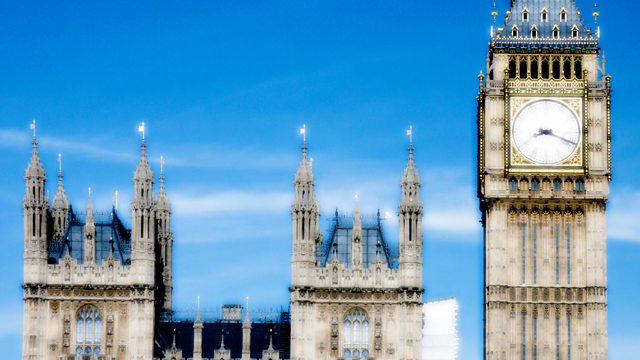Episode 3
Peter Hennessy continues his series of discussions looking at how a government would be formed after the election if no party wins an overall majority in the House of Commons.
With the prospect of a closely fought general election on 7th May, Peter Hennessy, the historian, is joined by Lord Adonis - Andrew Adonis - the former Cabinet Minister, who was one of Gordon Brown's advisers after the 2010 election, and who is a constitutional and political historian in his own right. They discuss how a government would be formed if no single party wins an overall majority in the House of Commons and look at the ground-rules - conventions, laws, precedents and principles - for deciding whether a prime minister and government remain in office, or a new prime minister is appointed and a new government formed.
When no single party won an overall majority in 2010, it took five days before talks between the parties produced a coalition between the Conservatives and Liberal Democrats. Their agreement enabled the Queen to appoint David Cameron as prime minister, because he could command the confidence of the House of Commons. In the hung parliament of 1974, the leader of the largest party in the Commons, Harold Wilson, formed a 'minority government'. In effect, the prime minister of a minority government commands the confidence of the House by calling the other parties' bluff, defying them to defeat the government in a confidence vote, thereby triggering an election.
However, it has become more difficult for a prime minister to engineer an early election since 2011, when Parliament passed the Fixed-term Parliaments Act. Peter Hennessy and his guests examine how a government would be formed in the event of a hung parliament and weigh the risks of a constitutional and political crisis.
Producer: Rob Shepherd.
Last on
Broadcast
- Thu 19 Mar 2015 13:4591热爆 Radio 4

